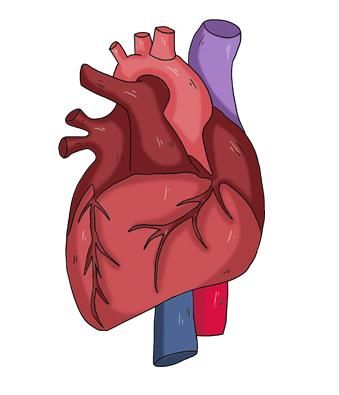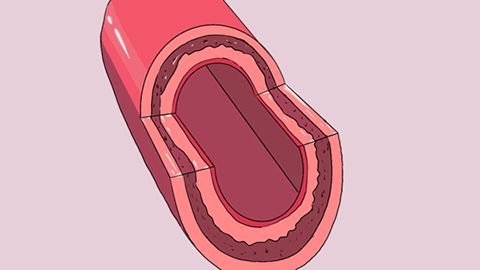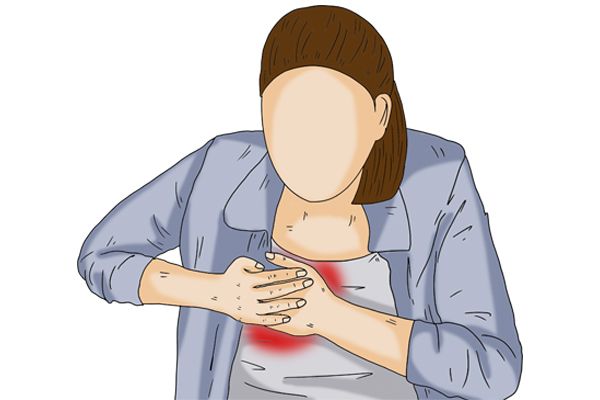
分享科學知識,傳播健康理念
What is the relationship between the number of heart beats and life expectancy? What range of heart rate is best?
Sometimes in our lives, we may have heard such words, how many times a person blinks, eats, and drinks water at most in a lifetime. Although it may sound a little weird, it is not necessarily without scientific reason. Life is limited, and these seemingly ordinary activities are naturally limited. Maybe there is indeed a range behind these numbers. Once life is reached, it will come to an end.
The heart in our body beats every day, every beat of it represents the vitality of life, and only when death comes, the heart will stop beating. So, have you ever had the thought that our heart beats are also limited? When a certain value is reached, my life will come to an end. Although this idea is absurd, it is not a fantasy. The number of times your heart beats may indeed be related to the length of your life. We can take a look at what experts at home and abroad have to say.

Is Heart Beats Linked to Longevity? Hear What the Experts Say
An article published in the Journal of Cardiology of the Journal of the American Medical Association said: A follow-up survey of American community residents showed that people whose heart beats five times per minute increased the risk of heart failure by 13%, and the risk of death was also increased by 13%. an increase of 13%.
Wen Qibang, a professor at my country's University of Traditional Chinese Medicine, also put forward a similar view. A normal person's heart rate when lying down should be around 60 beats/min. If it exceeds 70 beats/min, it is too fast. People with 70-80 beats/min have a life expectancy shortened by 3 compared to those with 60 beats/min. Year 6 months. 90-99 times, the life expectancy can be reduced by up to eight years.
Although the process of these two expert reports is different, they both make the same point that too fast heart rate can lead to shortened lifespan. This is basically consistent with our conjecture. Although there is not necessarily an upper limit on the number of heartbeats, a fast heartbeat will indeed speed up the loss of life.
But this result also confuses everyone. Does the heart also have a counter, and the number of beats of each heart is determined at birth? Why does the heart rate affect life expectancy? With this question, we continue to look down.
Heart rate affects longevity, and why?
Heart beats fast, blood vessels burst
High blood pressure is the high pressure on the walls of the blood vessels caused by the flow of blood. The heart is the source of power for our blood flow. The faster the heartbeat, the greater the pressure on the blood. The faster the natural flow rate, the more serious the high blood pressure.
In 2014, the Framingham study found that for every 11 beats per minute increase in heart rate, the risk of death increased by 15%.
This study can also prove that a fast heart rate affects lifespan through changes in blood pressure.

Excessive heart rate leads to an increase in endocrine hormones
The speed of heart rate depends on the cooperation of the body's nervous system and endocrine system. In turn, heart rate can also regulate the frequency of nerves and endocrine.
People with a fast heart rate will have a more excited nervous system than the average person, and will secrete more hormones. A fast beating heart also increases the risk of coronary heart disease and heart disease.
Using drugs to lower the heart rate of heart failure patients by 10 beats per minute can reduce the risk of death by about 11% within three years.

Of course, heart rate will certainly have some effect on other parts of the body, which will affect the length of life. But we will not introduce them one by one. Through learning, we also learned that although the heart does not have an upper limit on the number of beats, fast heartbeat will shorten life expectancy. This is not a groundless rumor, but a scientific basis.
Since it is not a rumor and fantasy, what kind of heart rate is the healthiest? How can we maintain such a heart rate?
What is the healthy range of heart rate? Do you know how to maintain it?
Be calm first, then lie down in bed. Hold down your pulse after five minutes, and the frequency of beating is between 60-100 beats per minute, which is within the range of normal people.
Do not measure after exercising or when you are sick. That will lead to errors in the results.
How to reduce heart rate too fast
First of all, go to the hospital to check whether the heart rate is too fast caused by diseases such as hyperthyroidism.
If it is due to a bad mood recently, or the weather is hot and dry. You can take a deep breath, hold it for three seconds and then exhale slowly, repeating several times to reduce the frequency of your heart rate.
If it is caused by heat, you can always turn on the air conditioner, fan and other electrical appliances to drive the heat away. Especially when summer is coming, don't turn on the air conditioner just because you can't bear the electricity bill, it will be harmful to your health.

How to improve heart rate too slow
If the heart rate is too slow, if there is an uncomfortable reaction, it is recommended to go to the hospital for examination immediately to prevent heart failure caused by disease.
At the same time, people who exercise regularly will also have a slower heartbeat frequency than ordinary people. If the difference between the values is not large, you don't need to worry too much.
The symptoms of low heart rate can be improved by doing some anaerobic exercise, and usually pay attention to more rest.
"The heart beats a certain number of times, it will stop", the whimsy of this sentence as a child, it turns out that there is such a scientific basis behind it. The heart is the power source of our life, and the beating of the heart determines whether our life can continue.
In life, use various methods to detect your heart rate frequency, and treat problems as soon as possible, so as not to let your heart disease become a life-threatening symbol.
Dear viewers, what do you think after watching this? The comment area looks forward to your message.
Subscribe I have a different wonderful every day!
Like my work?
Don't forget to support or like, so I know you are with me..
Comment…